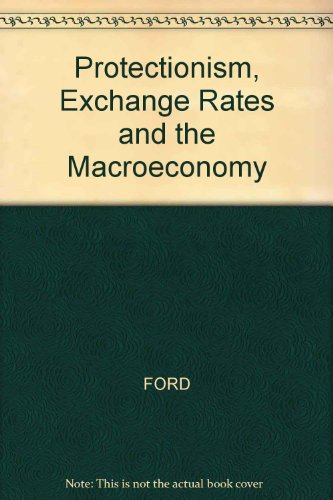Modern revivals in economics
2 total works
Protectionism, Exchange Rates and the Macroeconomy
by J L Ford and Somnath Sen
Published 26 September 1985
Against a background of persistent international economic recession and the failure of traditional monetary and fiscal policies to reverse the decline, the authors consider the central policy concern of whether import controls at an aggregate level can be used to reduce unemployment and raise national output. Taking several models of a small open economy operating under flexible exchange rates, the effects of both permanent and temporary tariffs on the nation's economic welfare and its imports from the rest of the world. The main conclusions from this study are that protectionism can raise aggregate output and alleviate unemployment; the effects on the macroeconomy of conventional demand management policies can be strengthened if the domestic economy is already being protected; a country's economy can be improved by a general tariff; and a general tariff need not provoke retaliation as it can lead to an increased demand for its exports by the domestic economy.
Expectations, Uncertainty and the Term Structure of Interest Rates
by J. C. Dodds and J L Ford
Published 1 January 1974
Provides a critical, analytical base for the major theories on the term structure of interest rates. The authors establish guidelines with which to subject individual theories to empirical evaluation, and provide a survey of the evidence to accompany the procedural aspects of the evaluation.

